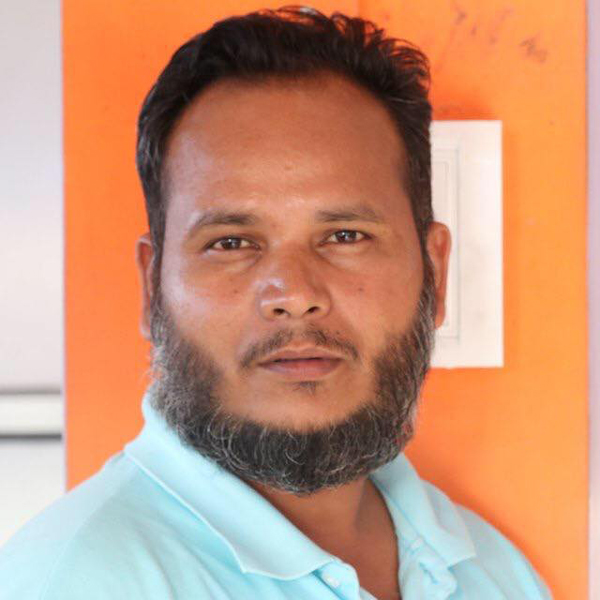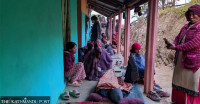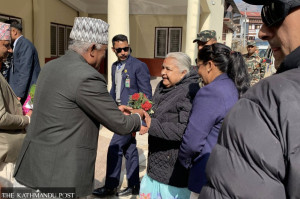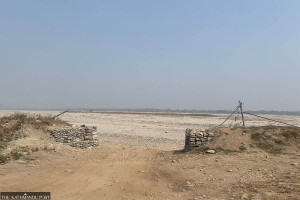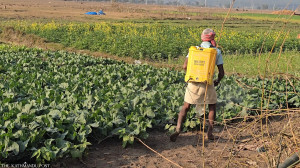Koshi Province
Deported by US, denied by Bhutan
Four Bhutanese refugee youths who were flown to Thimphu have arrived in Nepal and returned to their old refugee camps in Jhapa.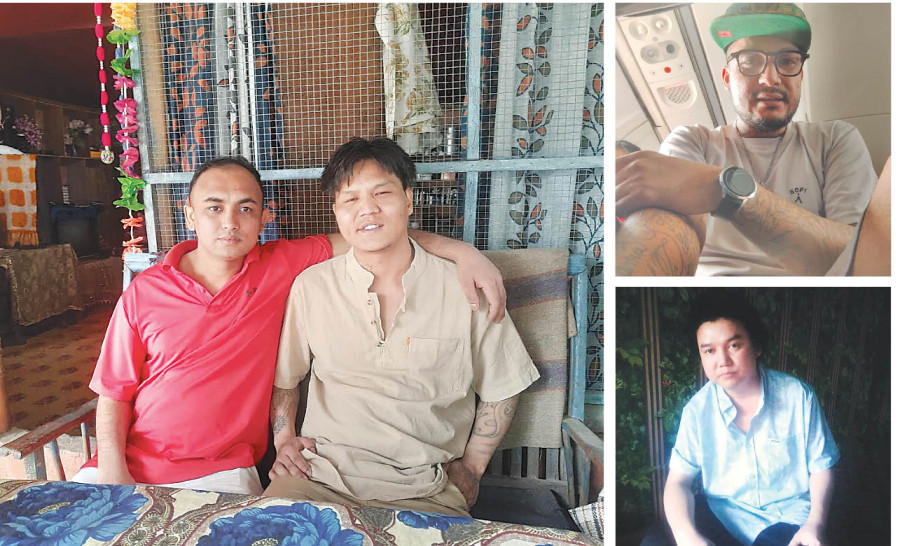
Parbat Portel
Ashish Subedi was only two years old when his family was forced to flee Bhutan in 1992. Along with his parents and siblings, he had arrived in Nepal, unaware of the immense loss of identity that would define much of his life.
Decades later, on March 25, 2025, that sense of statelessness became more acute when he was deported from the US.
“Who am I now? What country do I belong to? Will I ever regain my lost identity?” said Ashish, sitting inside his father’s hut in the Beldangi refugee camp where his journey began.
Ashish is not alone in this plight. Three other young Bhutanese—Ashok Gurung, Santosh Darjee and Roshan Tamang—have returned to the refugee camp in Beldangi of Jhapa after being deported from the US. Their paths have come full circle, back to the very camp their parents once arrived after travelling 628 kilometres from Bhutan.
At least Ashish has a hut in the refugee camp. His father Narayan Kumar Subedi had maintained their hut even after the rest of the family relocated to the US. Narayan Kumar lived there alone for ten years. Now he shares the hut with Ashok and Ashish, while Santosh has found shelter with a family friend Padam Kumar Magar. Roshan meanwhile stays with his maternal uncle Bishesh Tamang in Pathari-Shanishchare camp.
Ashok was born in the Timai refugee camp in 1992 after his family had fled Bhutan the same year. They were resettled in the US in 2012. The officials of International Organisation for Migration (IOM) had assured them that unless they committed serious crimes they could live in the US forever.
However, reality turned out different. Each of the four was convicted of criminal charges—ranging from substance abuse to sexual misconduct—and was eventually deported. They are now stuck in legal limbo, facing the challenge of having no country to call their own.
Crime, punishment and regret
Roshan’s American dream ended shortly after it began. Convicted of drinking and driving, he was jailed and later deported. His uncle says Roshan now suffers from depression and relies on medication.
Ashok served four years in prison on charges of being involved with a criminal gang. After completing his sentence, he was arrested again in March 2025 and entered into the deportation process. He recounted the moment immigration officers came to his home: “They asked me if I was Ashok and said an old case had resurfaced. I was shocked. They took me straight into custody and deported me.”
Santosh had been living in the US since 2015. He served an eight-year sentence for drug-related offenses and was deported immediately after his release. “After serving my time, I expected to be released with dignity, but instead, I was deported,” he said. Like others, Santosh believes his deportation is unjust, especially since they were initially resettled as refugees accepted by the US government.
Upon their deportation to Bhutan, the group was rejected. The Bhutanese government refused to recognise them as citizens and denied them the right to stay. Later, they were sent to Nepal without valid documentation.
The Nepali authorities detained them for entering the country illegally but released them after four weeks. This followed a Supreme Court order allowing them to stay in their respective municipalities under strict conditions, including mandatory weekly check-ins with local police.
Ashish’s ordeal
Ashish had reached the US in 2016 and stayed there with his aunt and maternal-uncles. He initially worked in Ohio, earning up to $21 an hour at a packaging company. He sent money back to support his father in the refugee camp.
But in 2022, he was convicted of ‘gross sexual imposition’—a serious offense in Ohio involving non-consensual sexual contact. He spent nearly two years in jail before being transferred to immigration custody. “I was not involved in the crime. I was framed,” Ashish, however, claimed.
Given a choice to be deported to either Nepal or Bhutan, Ashish opted for Bhutan, thinking his ancestral homeland would accept him. “I was hopeful Bhutan would recognise me as a citizen. But that hope was crushed,” he said.
On March 25, 2025, he and nine other Bhutanese were deported to Bhutan via Delhi. Bhutanese authorities held them at the Paro Grand guesthouse under strict surveillance. After a week, they were transported to the border town of Phuentsholing, where all their documents and digital data were confiscated. They were given IRs 30,000 each and were then sent into India.
Shadowy return to Nepal
A vehicle of Indian registration was ready when they reached Phuentsholing. From Phuentsholing, they traveled through Indian territory to Siliguri and then to Nepal’s Panitanki, a well-known hub for trafficking of undocumented migrants. This network often facilitates the illegal entry of Bangladeshis, Burmese and Bhutanese into Nepal. The group was smuggled into Nepal through the Satighatta area, bypassing border checkpoints that now require ID verification, a measure enforced since the Covid pandemic.
A rickshaw driver brought them into contact with traffickers and for IRs22,000 they were taken across the Mechi river into Kakadbhitta. From there, they called Ashish’s father and reached the Beldangi camp in a reserved taxi, paying Rs4,000. However, unable to stay hidden, Ashish’s father eventually informed the authorities, leading to their arrest.
Stateless again
Rajman Gurung, former secretary of the Beldangi Refugee Camp, describes the returnees’ situation as a severe human rights violation. “They are double refugees. They’ve not only lost their homeland but also the refugee status they once had. Now they have nothing,” he said.
Gurung called for urgent action from the Nepal government and the Office of the United Nations High Commissioner for Refugees (UNHCR) to restore the identity and rights of these young men. Despite their release, they continue to live in restricted conditions, with no clear path forward.
Though out of jail, their lives remain confined by surveillance, legal ambiguity and statelessness. “We have no country, and now not even an identity. I don’t know how long I can go on like this,” Ashish said with tears in his eyes.




 18.12°C Kathmandu
18.12°C Kathmandu